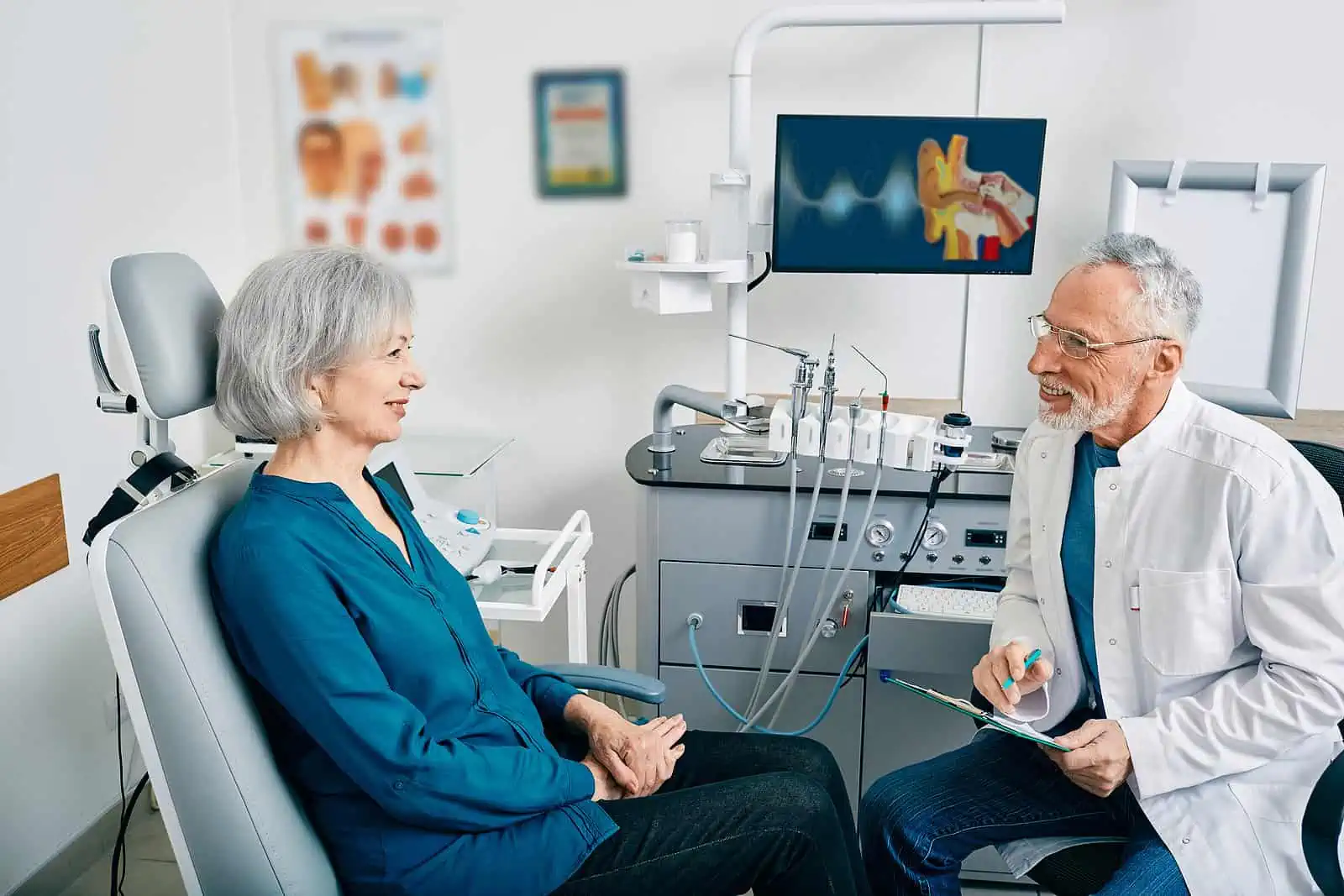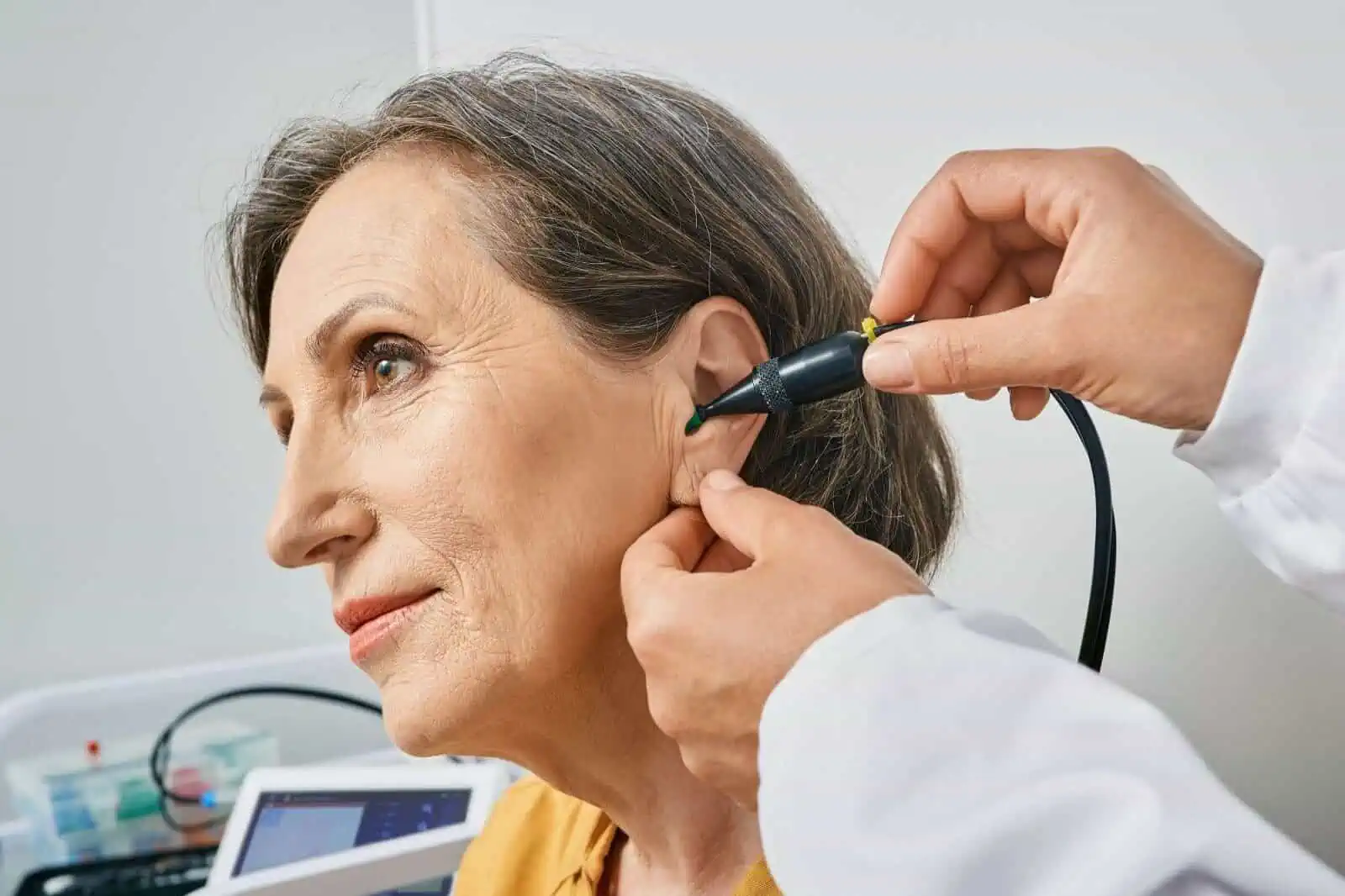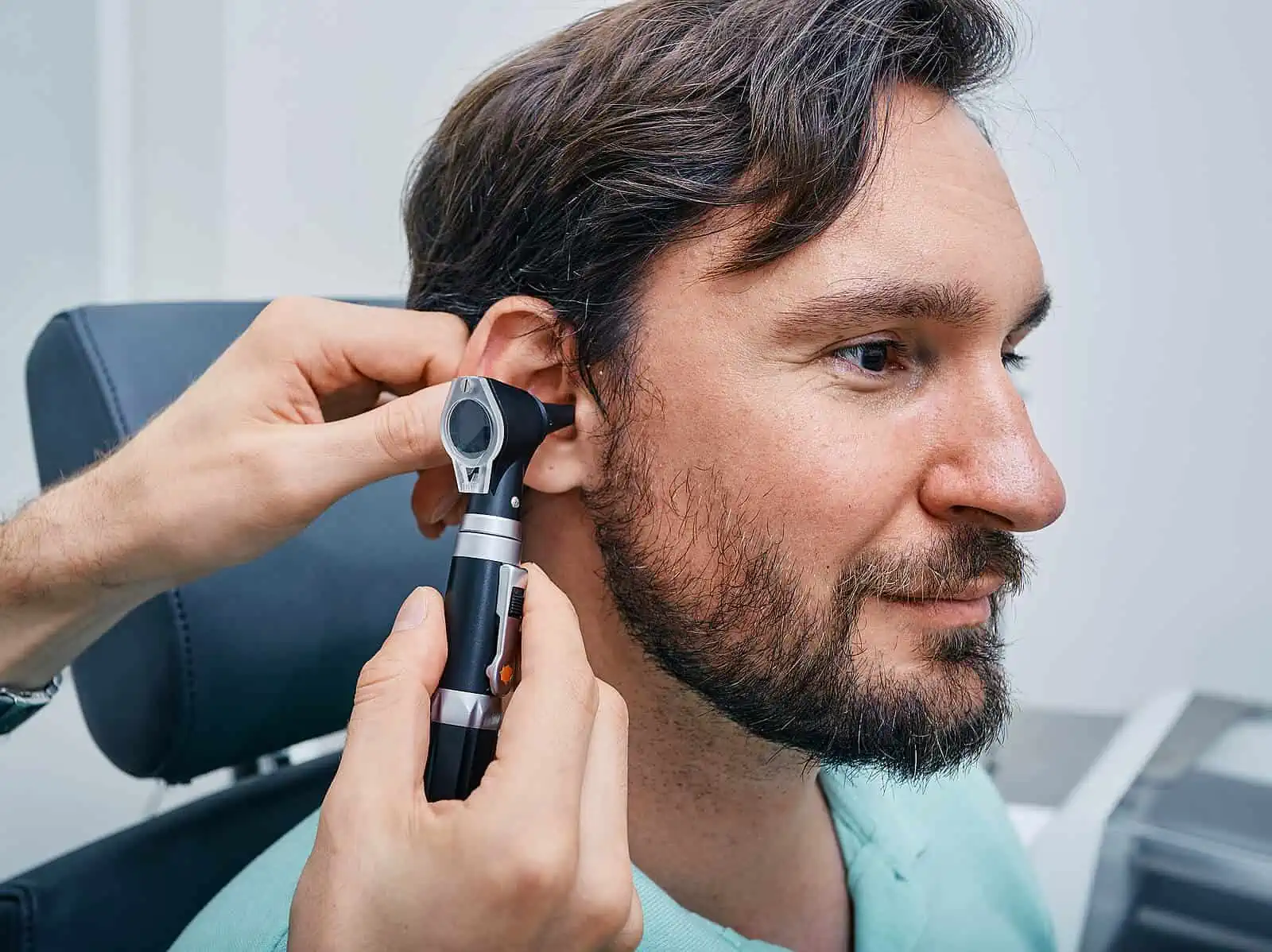What to Expect at a Hearing Test
What to Expect at a Hearing Test
Hearing tests are essential for everyone, but they are especially important for those at higher risk of developing hearing problems, such as older adults, individuals who work in noisy environments, and those with a family history of hearing loss. By getting a hearing test, you can identify any hearing problems and take the necessary steps to prevent further damage.

What is a Hearing Test?
A hearing test is a noninvasive evaluation of your ability to hear sounds of different frequencies and volumes. Hearing tests are typically conducted by a hearing specialist, a trained professional specializing in hearing and balance disorders. During a hearing evaluation, you will undergo a series of tests to determine your hearing ability. The tests may include a pure-tone audiometry test, speech recognition test, and other specialized diagnostics to determine the cause and extent of your hearing loss.
Schedule an AppointmentTypes of Hearing Tests
Several types of hearing tests may be used to evaluate your hearing ability, though the number you are subject to will depend on your situation. The most common tests include:

Pure-Tone Audiometry Test
The pure-tone audiometry test is the most common hearing test used to measure hearing ability. During this test, you will wear headphones and listen to a series of tones at different frequencies and volumes. You will be asked to indicate when you can hear each tone.

Speech Recognition Test
The speech recognition test is used to evaluate your ability to hear and understand speech. You will be asked to repeat words or sentences played through headphones or speakers during this test.

Tympanometry
The tympanometry test is used to evaluate the movement of your eardrum in response to changes in air pressure. This test can help determine if there is a problem with your middle ear, such as fluid buildup or eardrum perforation.

Preparing for a Hearing Test
Before your hearing test, it is essential to prepare to ensure that you get accurate results. You should avoid exposure to loud noises for at least 24 hours before your test, and also refrain from using earplugs or headphones, as this can affect your hearing ability. When you arrive for your hearing test, you should be prepared to provide information about your medical history, including any medications you are taking and any previous hearing tests you may have had. This information can help your hearing specialist determine the source of your hearing loss.
Schedule an Appointment
What to Expect During the Hearing Test
During the hearing test, you will be asked to sit in a quiet room and wear headphones, through which the hearing specialist will play a series of tones at different frequencies and volumes. You will be asked to indicate when you can hear each tone. The hearing specialist may also conduct a speech recognition test, where you will be asked to repeat words or sentences played through headphones or speakers in the same soundproof room or booth. You may also be asked to undergo other specialized tests, such as otoscopies or tympanometries, to determine the root of your hearing difficulties.
Schedule an Appointment
Understanding Your Hearing Test Results
After your hearing test is complete, your hearing specialist will provide a report detailing your hearing ability across all of the evaluations. The report will include information about your hearing threshold, which is the softest sound you can hear at different frequencies. If your hearing test results indicate some hearing loss, your hearing specialist will work with you to develop the most effective treatment plan available. Treatment options for hearing loss may include hearing aids, cochlear implants, or other assistive devices.
Schedule an Appointment
Monitoring Your Hearing Health is Critical
Getting a hearing test is essential in taking care of your hearing health. By identifying any hearing problems you may have early on, you can take steps to prevent further damage and improve your quality of life. If you are experiencing hearing problems, scheduling a hearing test with a qualified hearing professional as soon as possible is essential. With the right treatment plan and follow-up care, you can improve your hearing ability and maintain your quality of life.
Schedule an AppointmentOur Locations
Houston
Sugar Land
Corpus Christi
Start Your Journey to Better Hearing!
Start your journey to better hearing today with New Life Hearing and experience the world in a whole new way. Schedule a consultation with our experienced hearing specialists and take the first step towards improved hearing and a more fulfilling life. Don't wait any longer, let us help you rediscover the sounds you've been missing.
Contact Us